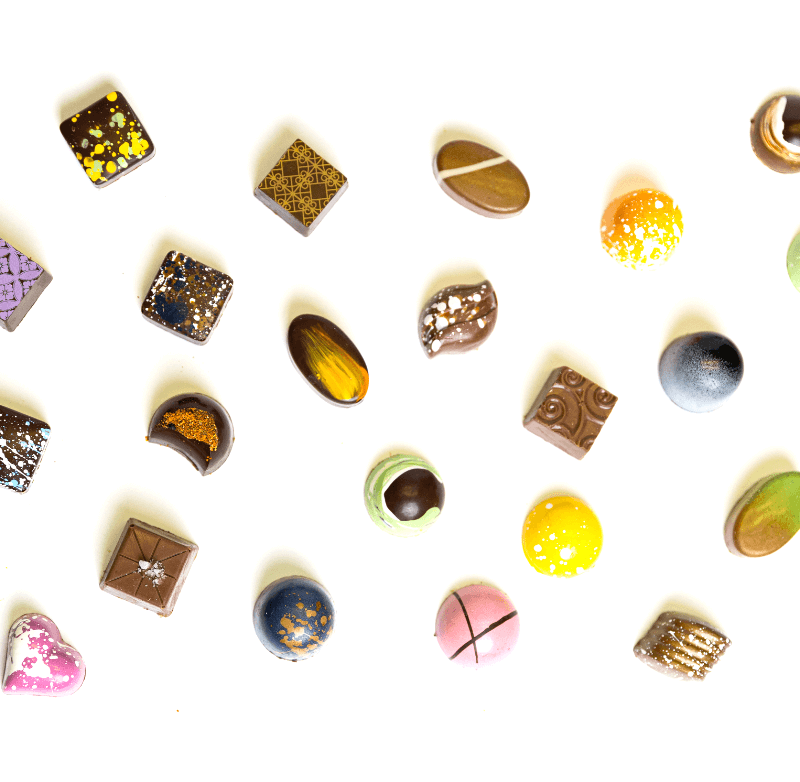How Plant-Based Chocolate Bars Compare to Traditional Chocolate
Indulging in chocolate is a universally cherished experience. But with growing dietary preferences and health consciousness, many are turning to plant-based options. Plant-based chocolate bars, commonly known as vegan chocolate bars, have become popular among consumers looking for dairy-free alternatives. But how do they really stack up against traditional chocolate bars?
In this article, we'll dive into the world of plant-based chocolate, exploring its ingredients, taste, nutritional value, and environmental impact compared to traditional chocolate.
What Are Plant-Based Chocolate Bars?
Plant-based chocolate bars are crafted without any animal-derived ingredients. Unlike traditional chocolate, which typically includes milk or milk solids, vegan chocolate relies on plant-based ingredients such as cocoa butter, coconut milk, almond milk, or other non-dairy alternatives to achieve the creamy texture chocolate lovers expect.
Key Ingredients in Vegan Chocolate Bars
The primary ingredient in both vegan and traditional chocolates is cocoa, derived from cacao beans. However, the absence of dairy in vegan chocolate means manufacturers often use other natural ingredients to replicate the creamy texture and rich flavor. Common substitutes include:
- Cocoa Butter: A crucial fat component from the cacao bean itself.
- Coconut Milk or Almond Milk: Popular non-dairy alternatives that add creaminess.
- Sweeteners: Vegan chocolates may use alternative sweeteners like coconut sugar or agave syrup.

Taste Comparison: Vegan vs. Traditional Chocolate
The taste of chocolate is subjective, influenced by personal preference and the quality of ingredients used. Here's how plant-based chocolate compares to its traditional counterpart in terms of flavor and texture.
Flavor Profile
Traditional chocolate bars often have a rich and creamy taste due to the inclusion of milk solids. On the other hand, plant-based chocolates can have a diverse range of flavors, depending on the type of plant-based milk or sweetener used. Some consumers find vegan chocolate to have a more intense cocoa flavor, as it often contains a higher cocoa content.
Texture
The texture of vegan chocolate can vary widely. High-quality vegan chocolates can mimic the smoothness of traditional chocolate, while some may have a slightly grainier texture due to the absence of milk fats. The inclusion of different plant-based milks also affects the mouthfeel, adding unique characteristics to each brand.
Nutritional Value: A Healthier Option?
When it comes to nutrition, plant-based chocolate bars offer some distinct advantages and considerations compared to traditional chocolate.
Calories and Sugar Content
Vegan chocolate bars can sometimes be lower in calories than their traditional counterparts, particularly if they use less sugar or alternative sweeteners. However, it's important to read labels carefully, as some vegan chocolates can still be high in sugar.
Fat Content
Both vegan and traditional chocolates contain fats, primarily from cocoa butter. Vegan chocolates often use additional plant-based fats, which may be considered healthier than animal-derived fats.
Antioxidants
Chocolate, especially dark chocolate, is known for its antioxidant properties, which can aid in reducing inflammation and improving heart health. Vegan chocolates, especially those with high cocoa content, retain these benefits.
Environmental Impact
Choosing plant-based chocolate is not just about personal health; it also has implications for environmental sustainability.
Dairy Farming vs. Plant-Based Ingredients
Dairy farming has a significant environmental footprint, contributing to greenhouse gas emissions, water usage, and land degradation. By opting for plant-based ingredients, vegan chocolates generally have a lower environmental impact.
Ethical Considerations
Many plant-based chocolate brands also focus on ethical sourcing, ensuring that the cacao is harvested sustainably and that workers are paid fair wages. This is an important consideration for consumers interested in ethical consumption.

Making the Switch: Tips and Considerations
If you're considering making the switch to plant-based chocolate, here are a few tips to keep in mind:
Start with Dark Chocolate
Dark chocolate naturally contains less milk than milk chocolate, making it an easier transition for those used to traditional chocolate. Many dark chocolates are already vegan or require minimal adjustments.
Experiment with Flavors
With so many varieties available, experimenting with different brands and flavors can help you find the perfect match for your taste buds. From almond butter infusions to mint-flavored bars, there's a vegan chocolate for everyone.
Read Labels Carefully
Not all chocolates labeled as "dark" are vegan. Always check the ingredient list to ensure there are no hidden animal-derived ingredients.
Conclusion
Plant-based chocolate bars offer a delightful alternative to traditional chocolates, catering to those seeking dairy-free, ethically sourced, and environmentally friendly options. With a variety of flavors and textures to explore, vegan chocolates provide a rewarding experience for any chocolate enthusiast. Whether you're motivated by health, ethics, or taste, there's never been a better time to indulge in the world of plant-based chocolate.
Explore Dallmann Fine Chocolates
Ready to embark on a delectable journey into the world of plant-based chocolate? Discover the exquisite offerings from Dallmann Fine Chocolates. Known for their commitment to quality and craftsmanship, Dallmann provides a selection of vegan chocolates that are sure to delight your senses. Whether you’re looking for an indulgent treat for yourself or the perfect gift for someone special, Dallmann Fine Chocolates has you covered. Visit their website today to explore their range and experience the art of fine chocolate-making, reimagined for the modern, conscious consumer.













